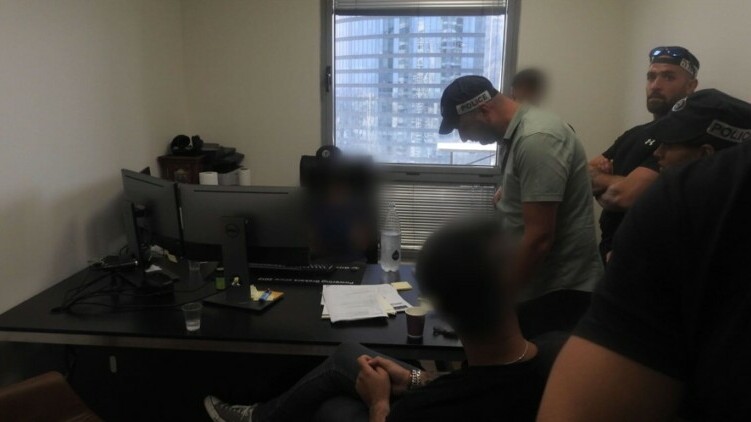Facebook Says It Is Trying To Do Better!
An Editorial By Tim McGuinness, Ph.D. – Anthropologist, Scientist, Director of the Society of Citizens Against Relationship Scams Inc., portions by Meta and Yahoo News
Meta Raising Online Defenses Through Transparency and Collaboration – So They Say!
Facebook and Meta’s Failure to Control Harmful Content
Facebook and Meta, the parent company of Facebook, have been under fire for years for their failure to control harmful content on their platforms. This includes fake news, hate speech, disinformation, and online criminals.
In recent years, there have been numerous reports of how Facebook has been used to spread misinformation and hate speech. For example, in the lead-up to the 2020 US presidential election, Facebook was flooded with fake news and disinformation about both candidates. This had a significant impact on the election, and many experts believe that it helped to contribute to Donald Trump’s victory.
Facebook has also been used to spread hate speech and promote violence. For example, in 2018, it was revealed that Facebook had been used to organize the genocide of the Rohingya people in Myanmar.
In addition to fake news, hate speech, and disinformation, Facebook has also been used by criminals to commit crimes. For example, in 2019, it was revealed that Facebook had been used to traffic children.
Facebook has repeatedly promised to do better at controlling harmful content, but it has so far failed to make significant progress. In fact, some experts (including SCARS) believe that the problem is getting worse.
There are a number of reasons why Facebook has been unable to control harmful content. One reason is that the company is simply too big. Facebook has over 2 billion active users, which makes it impossible for the company to manually review all of the content that is posted on the platform.
Another reason is that Facebook’s algorithms are not sophisticated enough to properly identify harmful content most of the time. The algorithms are designed to prioritize content that is likely to be engaging, but this often means that they promote harmful content as well.
Finally, Facebook has been reluctant to take action against harmful content for fear of being accused of censorship. The company has argued that it is important to allow users to express themselves freely, even if they say things that are offensive or harmful.
Facebook’s failure to control harmful content has had a number of negative consequences. It has damaged the company’s reputation, will lead to government regulation, and contributed to the spread of misinformation and hate speech. Not to mention the ever-present plague of online criminals victimizing normal users of their platforms.
Facebook needs to do more to address the problem of harmful content. The company should invest in more sophisticated algorithms and hire more human reviewers. It should also be more willing to take action against harmful content, even if it means being accused of censorship. But more than those, it needs to work with organizations that understand the criminality that occurs on their platforms – not how to spot a fake profile and the deeper psychological methods that victimize tens of millions. SCARS stands ready to work with Meta (if they are interested,) we have insights that have not been considered.
Only by taking these steps can Facebook hope to regain the trust of its users and prevent its platform from being used to spread harm.
What Meta Is Now Saying:
According to Guy Rosen, Chief Information Security Officer, Meta
Taking Down Two of the Largest Known Covert Influence Operations:
China: We recently took down thousands of accounts and Pages that were part of the largest known cross-platform covert influence operation in the world. It targeted more than 50 apps, including Facebook, Instagram, X (formerly Twitter), YouTube, TikTok, Reddit, Pinterest, Medium, Blogspot, LiveJournal, VKontakte, Vimeo, and dozens of smaller platforms and forums. For the first time, we were able to tie this activity together to confirm it was part of one operation known in the security community as Spamouflage and link it to individuals associated with Chinese law enforcement. See details in our Q2 Adversarial Threat report.
Russia: We also blocked thousands of malicious website domains as well as attempts to run fake accounts and Pages on our platforms connected to the Russian operation known as Doppelganger that we first disrupted a year ago. This operation was focused on mimicking websites of mainstream news outlets and government entities to post fake articles aimed at weakening support for Ukraine. It has now expanded beyond initially targeting France, Germany, and Ukraine to also include the US and Israel. This is the largest and the most aggressively persistent Russian-origin operation we’ve taken down since 2017. In addition to new threat research, we’re also publishing our enforcement and policy recommendations for addressing the abuse of the global domain name registration system.
What The World Is Saying
According to Yahoo News
Meta fights sprawling Chinese ‘Spamouflage’ operation
Meta on Tuesday said it purged thousands of Facebook accounts that were part of a widespread online Chinese spam operation trying to covertly boost China and criticize the West.
The campaign, which became known as “Spamouflage”, was active across more than 50 platforms and forums including Facebook, Instagram, TikTok, YouTube and X, formerly known as Twitter, according to a Meta threat report.
“We assess that it’s the largest, though unsuccessful, and most prolific covert influence operation that we know of in the world today,” said Meta Global Threat Intelligence Lead Ben Nimmo.
“And we’ve been able to link Spamouflage to individuals associated with Chinese law enforcement.”
More that 7,700 Facebook accounts along with 15 Instagram accounts were jettisoned in what Meta described as the biggest ever single takedown action at the tech giant’s platforms.
“For the first time we’ve been able to tie these many clusters together to confirm that they all go to one operation,” Nimmo said.
The operation originated in China and its targets included Taiwan, the United States, Australia, Britain, Japan, and global Chinese-speaking audiences.
Facebook or Instagram accounts or pages identified as part of the “large and prolific covert influence operation” were taken down for violating Meta rules against coordinated deceptive behavior on its platforms.
Meta’s team said the network seemed to garner scant engagement, with viewer comments tending to point out bogus claims.
Clusters of fake accounts were run from various parts of China, with the cadence of activity strongly suggesting groups working from an office with daily job schedules, according to Meta.
See below for the source article.
Also according to Yahoo News
Meta shuts down thousands of accounts linked to Chinese ‘Spamouflage’ campaign
Security researchers at Meta have identified and exposed a four-year-long propaganda campaign that they have linked to the Chinese government.
Removing the “Spamouflage” campaign: Meta removed 7,704 Facebook accounts, 954 Facebook pages, 15 Facebook groups and 15 Instagram accounts linked to the campaign, which researchers have named “Spamouflage” due to spam-like messages sent by the accounts, reported The New York Times.
“This is the biggest single takedown of a single network we have ever conducted,” Ben Nimmo, who heads Meta’s security team, told the Times. “When you put it together with all the activity we took down across the internet, we concluded it is the largest covert campaign that we know of today.”
About the campaign: Researchers revealed that the campaign was organized by Chinese law enforcement in 2019 to advance China’s interests while discrediting adversaries like the U.S. It involved spreading propaganda about Hong Kong’s pro-democracy protests, disinformation about the origins of COVID-19, attacks on dissidents and critics abroad and attempts to sow division during the 2022 midterm elections.
The campaign appears to have been run by geographically dispersed operators across China who were centrally provisioned with internet access and content directions. The propaganda included posts on various platforms, including Reddit, Medium, Tumblr, Facebook, TikTok and YouTube, and involved translations of articles in multiple languages.
Low effectiveness: Despite its size across social media platforms, the campaign struggled to attract attention due to poor grammar, spelling errors and incongruent content.
“It was as if they copied them from a numbered list and forgot to proofread them before they posted,” Nimmo said.
Summary
While we commend Meta on taking these actions, they are too little too late!
Meta needs to engage in a platform-wide war on the evil that permeates their platform. From disinformation or outright criminality, Facebook, and the other Meta platforms are out of control. It does not matter how many billions of profiles they delete if 50% of their users are still there to commit crimes,
With the advent of the European Union’s Digital Services Act (and hopefully soo similar laws elsewhere), we trust that more attention will be paid to cleaning up social media beginning with the Meta products and services.
However, we need your help too! Share this if you can. Help us place even more pressure on Meta!
Confirmed original by plagiarismdetector.net
SCARS Resources:
- For New Victims of Relationship Scams newvictim.AgainstScams.org
- Subscribe to SCARS Newsletter newsletter.againstscams.org
- Sign up for SCARS professional support & recovery groups, visit support.AgainstScams.org
- Find competent trauma counselors or therapists, visit counseling.AgainstScams.org
- Become a SCARS Member and get free counseling benefits, visit membership.AgainstScams.org
- Report each and every crime, learn how to at reporting.AgainstScams.org
- Learn more about Scams & Scammers at RomanceScamsNOW.com and ScamsNOW.com
- Global Cyber Alliance ACT Cybersecurity Tool Website: Actionable Cybersecurity Tools (ACT) (globalcyberalliance.org)
- Self-Help Books for Scam Victims are at shop.AgainstScams.org
- Donate to SCARS and help us help others at donate.AgainstScams.org
- Worldwide Crisis Hotlines: International Suicide Hotlines – OpenCounseling : OpenCounseling
- Campaign To End Scam Victim Blaming – 2024 (scamsnow.com)
More:
- The EU Digital Services Act (DSA) Becomes Enforceable (scamsnow.com)
- Meta fights sprawling Chinese ‘Spamouflage’ operation (yahoo.com)
- Raising Online Defenses Through Transparency and Collaboration | Meta (fb.com)
- Meta shuts down thousands of accounts linked to Chinese ‘Spamouflage’ campaign (yahoo.com)
-/ 30 /-
What do you think about this?
Please share your thoughts in a comment below!
More ScamsNOW.com Articles
-/ 30 /-
What do you think about this?
Please share your thoughts in a comment above!
SCARS LINKS: AgainstScams.org RomanceScamsNOW.com ContraEstafas.org ScammerPhotos.com Anyscam.com ScamsNOW.com
reporting.AgainstScams.org support.AgainstScams.org membership.AgainstScams.org donate.AgainstScams.org shop.AgainstScams.org
youtube.AgainstScams.org linkedin.AgainstScams.org facebook.AgainstScams.org
ARTICLE RATING
TABLE OF CONTENTS
- Meta Raising Online Defenses Through Transparency and Collaboration – So They Say!
- Facebook and Meta’s Failure to Control Harmful Content
- What Meta Is Now Saying:
- What The World Is Saying
- Summary
- SCARS Resources:
- More:
- Important Information for New Scam Victims
- Statement About Victim Blaming
- SCARS INSTITUTE RESOURCES:
- Psychology Disclaimer:
- More ScamsNOW.com Articles
- A Question of Trust
- SCARS Institute™ ScamsNOW Magazine
Society of Citizens Against Relationship Scams Inc. [SCARS]
CATEGORIES
MOST POPULAR COMMENTED ARTICLES
POPULAR ARTICLES
U.S. & Canada Suicide Lifeline 988
![NavyLogo@4x-81[1]](https://scamsnow.com/wp-content/uploads/2025/04/NavyLogo@4x-811.png)
ARTICLE META
WHAT PEOPLE ARE TALKING ABOUT LATEST SITE COMMENTS
See Comments for this Article at the Bottom of the Page
on Scam Victims Use Work To Avoid Healing: “The last 6 years have been the most difficult of my life. The pandemic, having both parents in the hospital…” Jun 29, 18:38
on Entitlement Mentality And How Scam Victims Often Lose Their Path To Recovery – 2024: “Thank you for this discussion of entitlement. I can see from the descriptions listed that I have not felt entitlement.…” Jun 29, 18:22
on Samurai Wisdom and Rituals for Clearing the Mind After Scam Trauma – 2025 – [VIDEOS]: “A great guide on how to move forward in our recovery process with a calm mind, cleansed on an ongoing…” Jun 28, 07:34
on Delayed Gratification and Patience in Scam Victim Recovery – 2025 – [VIDEOS]: “We want to recover quickly and… we make new mistakes. How not to speed up the recovery process, how to…” Jun 28, 06:41
on The Unique Injury Of Betrayal Trauma On Scam Victims – 2024: “Primarily because you did not see it coming” Jun 27, 23:57
on Changes In A Scam Victim’s Life: “I really detest the way my trust in others has been affected by the scamming I went through. I used…” Jun 27, 14:47
on The Unique Injury Of Betrayal Trauma On Scam Victims – 2024: “Betrayal Trauma is the worst feeling ever. Why does it seem so much worse when a scammer does that to…” Jun 27, 14:34
on EMDR Therapy For Scam Victims’ Trauma – A Part Of The Recovery Process For Many – 2024: “Very comprehensive article explaining all aspects of EMDR. I’d only heard of it before and now I have a much…” Jun 26, 19:01
on Forgiving Yourself After Surviving a Romance or Investment Scam – 2025: “Thank you for this valuable article. Self-forgiveness was for me the biggest step that led to my recovery. That also…” Jun 26, 17:28
on Counseling And Your Native Language: “These points make perfect sense. I can’t imagine trying to express complex emotions in a second language. I realize many…” Jun 26, 16:05
on Thought-Terminating Cliches – How What You and Others Say Stops Critical Thinking and Recovery for Scam Victims – 2025: “I didn’t realize that these “innocent phrases” clichés ending thoughts, can have such effect / negative -inhibiting / on our…” Jun 26, 14:48
on Scam Victim Resistance In Support Groups Therapy Or Counseling Can Destroy Opportunities For Recovery – 2024: “Working with either a support group or therapist to me means a self commitment to actively participating in the therapy.…” Jun 24, 21:01
on ‘I Just Want To Forget It’ – Denial & Avoidance Are Natural But Will Not Help Scam Victims On Their Path To Recovery From Scams – 2024: “My financial loss, the shock and betrayal of the crime ending all combined to fray my nerves and spend hours…” Jun 24, 20:10
on You Hate Being Told What To Do? How Your Rebellious Mentality Can Sabotage Your Recovery – 2025: “I am a bit of a rebel, and the moment someone tells me to do something, worse, does it even…” Jun 24, 15:04
on You Hate Being Told What To Do? How Your Rebellious Mentality Can Sabotage Your Recovery – 2025: “You are very welcome” Jun 24, 03:01
on You Hate Being Told What To Do? How Your Rebellious Mentality Can Sabotage Your Recovery – 2025: “This is a great article, which makes perfect sense as to why anyone would resist the help offered to them.…” Jun 23, 20:01
on Scam Victims’ Responsibilities – 2021 [Updated 2025]: “Thank you for this article. As I continue my journey, I focus on the here and now and let the…” Jun 21, 16:26
on Scam Victims Avoid Or Escape The Aftermath Of Scams – How Denial And Distraction Avoid Confronting Reality – 2024: “In the earliest days after my crime I felt powerless, helpless and weak. I had been through so much in…” Jun 21, 14:46
on Problems and Opportunities – Thoughts on Psychological Reframing – 2025: “An article that really helped me look at the problems in my life from a different point of view and…” Jun 21, 14:42
Important Information for New Scam Victims
Please visit www.ScamVictimsSupport.org – a SCARS Website for New Scam Victims & Sextortion Victims
SCARS Institute now offers a free recovery program at www.SCARSeducation.org
Please visit www.ScamPsychology.org – to more fully understand the psychological concepts involved in scams and scam victim recovery
If you are looking for local trauma counselors, please visit counseling.AgainstScams.org
If you need to speak with someone now, you can dial 988 or find phone numbers for crisis hotlines all around the world here: www.opencounseling.com/suicide-hotlines
Statement About Victim Blaming
Some of our articles discuss various aspects of victims. This is both about better understanding victims (the science of victimology) and their behaviors and psychology. This helps us to educate victims/survivors about why these crimes happened and not to blame themselves, better develop recovery programs, and help victims avoid scams in the future. At times, this may sound like blaming the victim, but it does not blame scam victims; we are simply explaining the hows and whys of the experience victims have.
These articles, about the Psychology of Scams or Victim Psychology – meaning that all humans have psychological or cognitive characteristics in common that can either be exploited or work against us – help us all to understand the unique challenges victims face before, during, and after scams, fraud, or cybercrimes. These sometimes talk about some of the vulnerabilities the scammers exploit. Victims rarely have control of them or are even aware of them, until something like a scam happens, and then they can learn how their mind works and how to overcome these mechanisms.
Articles like these help victims and others understand these processes and how to help prevent them from being exploited again or to help them recover more easily by understanding their post-scam behaviors. Learn more about the Psychology of Scams at www.ScamPsychology.org
SCARS INSTITUTE RESOURCES:
If You Have Been Victimized By A Scam Or Cybercrime
♦ If you are a victim of scams, go to www.ScamVictimsSupport.org for real knowledge and help
♦ Enroll in SCARS Scam Survivor’s School now at www.SCARSeducation.org
♦ To report criminals, visit https://reporting.AgainstScams.org – we will NEVER give your data to money recovery companies like some do!
♦ Follow us and find our podcasts, webinars, and helpful videos on YouTube: https://www.youtube.com/@RomancescamsNowcom
♦ Learn about the Psychology of Scams at www.ScamPsychology.org
♦ Dig deeper into the reality of scams, fraud, and cybercrime at www.ScamsNOW.com and www.RomanceScamsNOW.com
♦ Scam Survivor’s Stories: www.ScamSurvivorStories.org
♦ For Scam Victim Advocates visit www.ScamVictimsAdvocates.org
♦ See more scammer photos on www.ScammerPhotos.com
You can also find the SCARS Institute on Facebook, Instagram, X, LinkedIn, and TruthSocial
Psychology Disclaimer:
All articles about psychology and the human brain on this website are for information & education only
The information provided in this and other SCARS articles are intended for educational and self-help purposes only and should not be construed as a substitute for professional therapy or counseling.
Note about Mindfulness: Mindfulness practices have the potential to create psychological distress for some individuals. Please consult a mental health professional or experienced meditation instructor for guidance should you encounter difficulties.
While any self-help techniques outlined herein may be beneficial for scam victims seeking to recover from their experience and move towards recovery, it is important to consult with a qualified mental health professional before initiating any course of action. Each individual’s experience and needs are unique, and what works for one person may not be suitable for another.
Additionally, any approach may not be appropriate for individuals with certain pre-existing mental health conditions or trauma histories. It is advisable to seek guidance from a licensed therapist or counselor who can provide personalized support, guidance, and treatment tailored to your specific needs.
If you are experiencing significant distress or emotional difficulties related to a scam or other traumatic event, please consult your doctor or mental health provider for appropriate care and support.
Also read our SCARS Institute Statement about Professional Care for Scam Victims – click here
If you are in crisis, feeling desperate, or in despair, please call 988 or your local crisis hotline.
More ScamsNOW.com Articles
A Question of Trust
At the SCARS Institute, we invite you to do your own research on the topics we speak about and publish. Our team investigates the subject being discussed, especially when it comes to understanding the scam victims-survivors’ experience. You can do Google searches, but in many cases, you will have to wade through scientific papers and studies. However, remember that biases and perspectives matter and influence the outcome. Regardless, we encourage you to explore these topics as thoroughly as you can for your own awareness.














![scars-institute[1]](https://scamsnow.com/wp-content/uploads/2025/04/scars-institute1.png)
![niprc1.png1_-150×1501-1[1]](https://scamsnow.com/wp-content/uploads/2025/04/niprc1.png1_-150x1501-11.webp)
